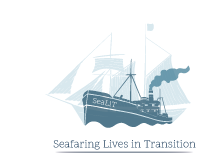[node:field_my_title]
The deliverables of the project include:
- A final collective printed volume in English.
- Articles in peer reviewed international journals.
- Five Ph.D. dissertations, in topics of Modern Greek, Ottoman, Spanish, French and Italian Maritime History in the University of Barcelona, University of Genoa and University of Crete.
- Four workshops in Rethymno, Barcelona, Genoa and Odessa.
- A final international conference to be held in Rethymno at the premises of the Institute for Mediterranean Studies.
- Semantic network data base
One of the chief challenges with regards to organizing the primary data of the project is how to balance faithfulness to primary sources with the need to integrate data for analysis and to ask questions that go beyond individual sources or research teams, truly leveraging the collective output of research carried out at a European scale.
To address this challenge, the SeaLiT project is adopting semantic data technology. Primary documents such as ship logbooks and crew lists will first be digitized as-is, digitally capturing the knowledge therein in its original form. The data will then be mapped to a common RDF format taking advantage of the CIDOC CRM formal ontology for translating the individual data sources into a common expression.
Once in this common format, the data will form a semantic graph, a type of database that allows deep and intuitive queries over complex data. This will allow our researchers and the public to intuitively query the collective results of the SeaLiT research team’s work in order to discover new information and patterns regarding this crucial transition period in the history of the Mediterranean. - An open access archival and bibliographical corpus compiled by the researchers of the project, who will contribute to the construction of two apposite databases, one archival and one bibliographical, which will function as a commentated guide of primary and secondary sources.
